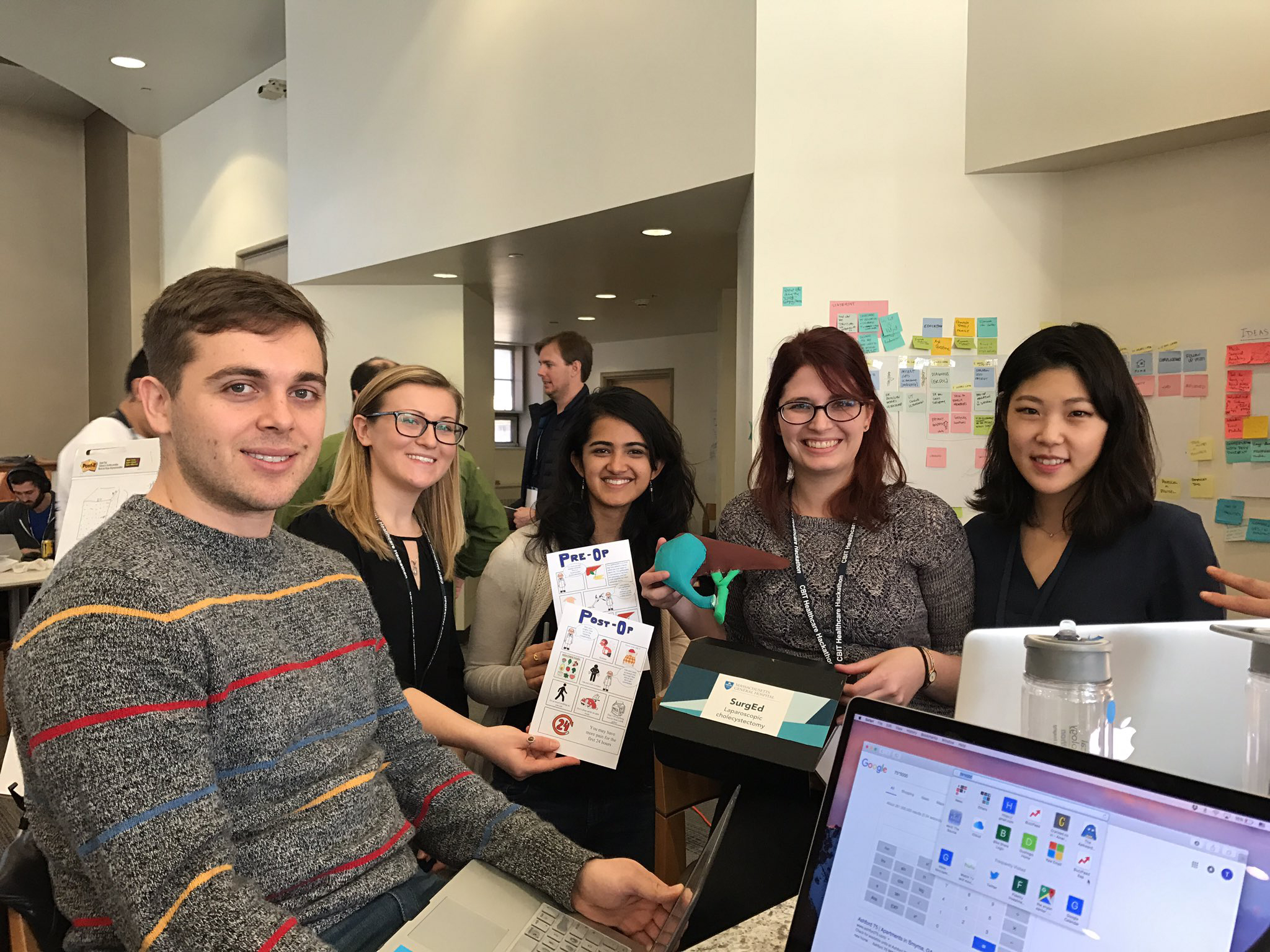
On the weekend of Jan. 20, the Center for Biomedical Innovation and Technology and the Yale School of Medicine’s Department of Radiology and Biomedical Imaging co-hosted the fourth annual Health Care Hackathon.
According to the hackathon’s website, a health care hackathon is a multi-day event that brings together students and professionals with diverse perspectives to develop “innovative, disruptive ideas and solutions” for modern health care challenges. Located on the medical school’s campus, the event focused on rethinking the patient experience and the engagement of health care providers, with special tracks on medical imaging and process redesign.
“The goal of the hackathon was to stroke the entrepreneurial spirit of participants and to get people thinking about problems that are meaningful but no one’s job to solve,” said Alyssa Siefert, engineering director at CBIT. “If ventures come out of it, that’s great — but anyone who has an experience that broadens their way of thinking is totally a success.”
According to Ayesha Khalid, CBIT clinical director and hackathon co-organizer, the hackathon drew 171 registrants and 70 mentors, including some international teams. Khalid added that while the turnout was above the planning team’s original target, even more participated and the events were open to members of the public.
Khalid noted that while Yale was the most represented school, participants came from institutions traditionally less focused on scientific research, such as Vassar College and the Rhode Island School of Design.
Jeffrey Weinreb, professor of radiology and biomedical imaging at the medical school and another co-organizer of the hackathon, said that there was a concerted effort to attract individuals from liberal arts institutions. Weinreb added that this has been a weakness at hackathons elsewhere.
The hackathon will try to continue supporting teams after the event, regardless of whether they won, thereby emphasizing the importance of mentorship, Khalid said.
“I think all hackathons struggle from the continuity moving forward,” Khalid said. “The [prize] money is not helpful without internal champions — the internal champion needs to provide students with the space, resources and mentorship … We’re trying to connect people and lay the bread crumbs for a path.”
Siefert said that even for teams that did not win, the organizers will host a post-hackathon event where teams will have the opportunity to polish their ideas, collaborating alongside a smaller group of mentors. She added that mentors expressed interest in continuing to work with several teams.
Khalid said that the organizing team sourced industry sponsors strategically, considering the goals of sponsor organizations.
“As an industry sponsor, we participate for one primary reason: innovation,” said Kevin Renahan, the director of medical and scientific education at Stallergenes Greer. “When we discuss some of the challenges we face internally, we get an opinion, but that’s limited from people who are steeped in that particular industry, which in our case is allergy management.”
Renahan emphasized the importance of industry professionals speaking to individuals outside of the specialty area.
“We wind up getting innovative thoughts that normally didn’t occur to us because of a limitation of experience,” Renahan said.
Hans-Aloys Wischmann, the innovation program manager at Philips Research, said that while student recruitment was not the primary aim of their participation, the event allowed students to connect with career professionals. He added that Philips sent over a dozen employees to deliver keynote lectures, mentor and coach teams and judge solutions.
“We always enjoy being exposed to brilliant ideas from a diverse set of participants in teams that all share our passion of creating meaningful innovations that make a difference for patients and caregivers,” Wischmann said. “In addition, it is important and rewarding for us to help these highly motivated and talented teams in refining their ideas, motivating them to continue on their path or to consider alternatives.”
Prizes of $500 and $1500 were awarded to top teams, according to the hackathon’s website. Per the hackathon participant guide, solutions were judged on their health impact, innovation, business model, product and presentation.
Isabel Castillo, a sophomore at Vassar College whose team won the $500 prize to reduce health disparities, said her solution was motivated by her experience as a medical assistant and subsequent time in the military. Along with a team of insurance professionals, a data scientist and a professional engineer, Castillo and her team created Rx4All, a non-profit organization which redistributes unused medication to low-income patients.
“The mentors were crucial for developing our ideas,” said Castillo. “[The hackathon] was very well-organized and diverse. There were people with a lot of experience in specific fields — otherwise, who would guide us?”
According to Siefert, the grand prize winner was a pair of Army and Navy veterans who developed a fully functioning app using spatial and speech recognition to detect post-traumatic stress disorder or depression earlier on. The team was inspired by the high suicide rate of veterans.
In an email to the News, Siefert noted that moving forward, the organizing team hopes to broaden the hackathon theme, tailor keynote speeches to focus on problem solving and better match mentors to teams.
CBIT was formally established in 2014.
Correction, Feb. 15: A previous version of the article incorrectly listed CBIT as the “Center for Biomedical Interventional Technology.” In fact, CBIT changed their name late last year to the “Center for Biomedical Innovation and Technology.” Additionally, the article incorrectly listed this year’s hackathon as the third annual hackathon, when in fact it is the fourth.







